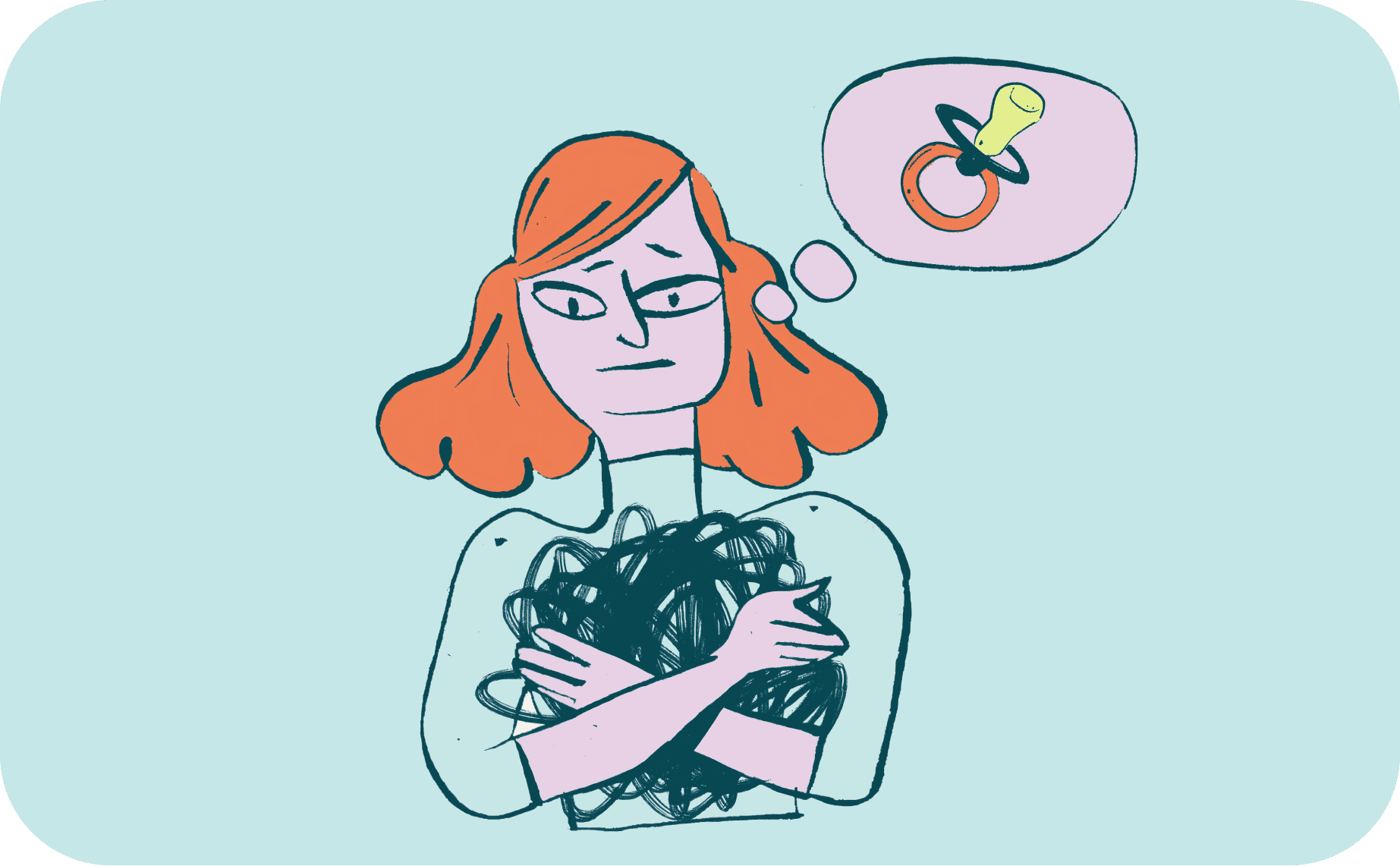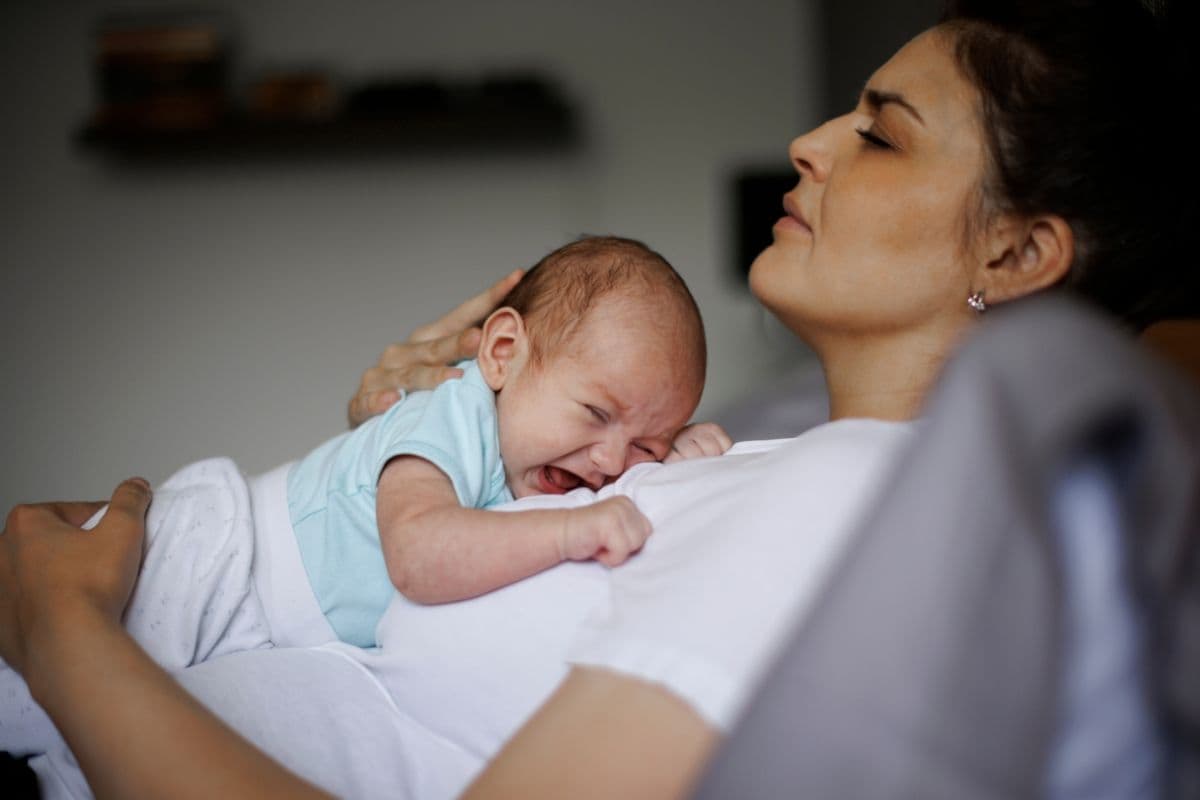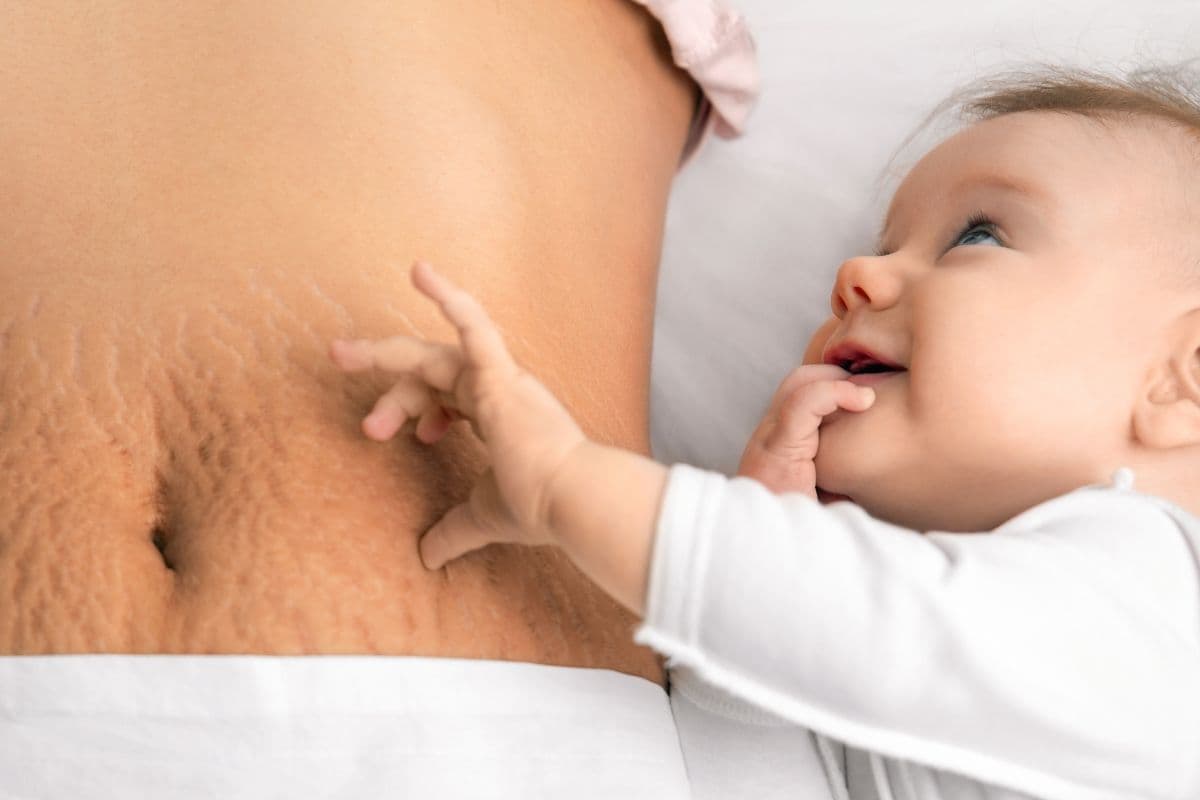
Postpartum depression and blues: How to overcome them — your guide out
These were supposed to be the happiest moments of your life, but instead you feel tired, sad, and hopeless. You keep blaming yourself for feeling this way after birth. Maybe you feel like you’ve failed or that you can’t bond with your baby. If we just described how you feel, then it’s good you’re here – please keep reading. There is a way out.
What Is Postpartum Depression? These Are the Main Symptoms
Postpartum depression is a type of depressive disorder that can start during pregnancy or in the weeks following childbirth, lasting more than two weeks. You don’t feel like yourself – you might feel like a stranger in your own skin. You become more sensitive, cry more often, and things upset you easily. You feel restless, and anxiety or panic attacks can take over. The exhaustion is deep in every part of your body, and even getting out of bed feels increasingly difficult.
You might have very distressing, negative, or self-blaming thoughts and feel overwhelmed by hopelessness. If thoughts of hurting yourself or your baby come up, it’s crucial to get help right away.
This is not your fault. Postpartum depression happens more often than you realize
Each year, 10 to 15% of moms struggle with postpartum depression. You are not alone. It might help to hear that most people fully recover once they ask for help. Even if it feels like your life will never be the same and that being a mom isn’t for you, things really will get better. Your brain is overwhelmed with stress and exhaustion, which can distort how you see things.

Why is this happening to me? Causes of postpartum depression
Understanding the causes can help you see that you’re not to blame for your feelings.
- Pregnancy alone is an emotional rollercoaster, but after birth, everything multiplies.
- You have to go through really tough hormonal swings and physical challenges.
- As a new mom, you might feel like you’ve lost your own identity. Suddenly, everything has to revolve around the baby.
- You get little sleep, which makes you more vulnerable to mental health struggles.
- You probably expected this time to be wonderful — that’s how everyone describes it. But the clash with reality threw you off balance.
- People around you keep saying that parenthood is the most beautiful time of your life, and that only deepens your feelings of guilt.
- If your birth was complicated, that can also be a reason for what you’re going through now.
- Maybe you don’t feel enough support from your partner or others. You might feel alone in this.
- Genetics also play a role. Anxiety and depression in your family could have contributed.
- Maybe your pregnancy was unplanned or you have negative feelings about it. That absolutely doesn’t mean you’re a bad person. Please don’t let anyone convince you otherwise. You are incredibly strong for fighting through this and reading this article.
What Are We Trying to Say? Given the circumstances, it’s completely understandable that you feel at your lowest. It definitely doesn’t mean that what you’re going through is okay — it really isn’t. But it does mean that you don’t have to blame yourself for it.
Postpartum depression affects men too
And it’s more common than you might think. About 1 in every 8 to 13 fathers experiences it. However, men often go through postpartum mental struggles differently than women — for example, through irritability, fatigue, withdrawing from family life, or psychosomatic symptoms.
The risk increases if the partner is also suffering from postpartum depression. If this applies to you, here you can find help and support. Your feelings are not a sign of weakness, and there is a way out.

Postpartum depression or “Baby blues”? Here are the differences and symptoms
So-called “baby blues” affect up to 80% of new parents. It shows up as extreme tiredness, tearfulness, or anxiety.
Baby blues usually fade within two weeks. In contrast, postpartum depression lasts longer and the unpleasant feelings are more intense. You’re overwhelmed by a strong sense of hopelessness, constantly low mood, dark thoughts, anxiety, and guilt. Moments of calm and peace become rarer until you’re engulfed by darkness.
Postpartum depression TEST: Find out if it’s really depression
Let’s find out if you’re experiencing baby blues that will pass soon, or if you’re already dealing with depression. Answer these questions honestly with YES or NO:
- Sadness, emptiness, anxiety, and restlessness have been troubling me for more than 2 weeks.
- I hardly experience any positive emotions — I constantly feel bad.
- I feel like I can’t enjoy things that used to make me happy.
- I feel like I’m failing to form a deep bond with my baby.
- I imagined parenthood very differently. I’m not managing it at all and feel guilty about it.
- I feel like there’s no way things could get better. I feel hopeless.
The more times you answered YES to this section, the more likely it is that you are experiencing postpartum depression. Please continue with these questions:
- Have you ever thought that you or others might be better off if you weren’t here?
- Have you imagined what it would be like to leave or run away and never come back?
- Are you losing the strength to take care of yourself and your baby?
- Have you had thoughts about hurting your baby, even if those thoughts scared you afterward?
- Do you experience intense panic attacks, feelings of detachment from reality, and a sense that there is no way out?
If you answered YES to even one question in this section, please seek help as soon as possible.
- Schedule a session with a psychotherapist or psychiatrist.
- If you feel you need help right now, call the confidential mental health helpline at 116 123. You will receive support and help here without judgment or prejudice.
It doesn’t mean you’re weak. You’re just going through more pain than you can handle right now. But it won’t last forever. Your emotions and hormones are distorting reality because you’re under enormous stress and exhaustion. Don’t face this alone. Help is available.

I have postpartum depression or baby blues. How to overcome them and where to get help.
If you feel like you can still help yourself, we have several methods recommended by our psychotherapists. They can guide you toward a way out if you’re not ready for therapy yet. They will also help you see when it’s time to consider professional help.
1. Speak about it
Naming your feelings often brings huge relief — especially if you feel ashamed of them or blame yourself. Saying them out loud can ease some of that heavy weight. Talk to someone you trust — maybe a friend, your partner, or a sibling. If that feels impossible right now, consider therapy or call the anonymous mental health helpline at 116 123.
2. Be kind to yourself
It’s not your fault. This time is incredibly tough – even for people who often seem completely balanced. Don’t fight with yourself: admit that you’re feeling bad right now, and that it makes sense. But there is a way out, and if you speak to yourself like you would to a friend, you’ll find it faster.
3. Try to rest
We know it’s incredibly hard. But try to take advantage of every moment you can. When your baby sleeps, try to sleep too. Sleep – or even just resting while lying down – is key to breaking the vicious cycle. When you’re sleep-deprived, your brain goes into survival mode and runs on autopilot. That’s why everything feels darker.
4. Avoid isolating yourself
You might feel like shutting yourself off from the world right now. It may seem like the only way out. You’re afraid to go outside, feeling ashamed. You can’t pretend everything is okay.
But social contact has a huge impact on your mental health. If you can, try to keep at least some small connection with your loved ones. Call a friend sometimes or go outside for a little fresh air.

5. Try support groups
On Facebook or in person. Meeting people who feel the same or similar to you can bring huge relief. Try events organized by the group “Postpartum Depression” Follow them on Facebook too. Many women share their experiences with tough times they’re going through or have overcome — this can be your proof that you can get through it too.
6. Try to stay active, eat, and drink
Even a five-minute walk around the house counts. Really. Also, don’t forget to drink plenty of water and eat at least a small, nutritious snack. Your body will get the signal that it’s being cared for and won’t stay stuck in survival mode.
7. Find a little moment for yourself
Every extra minute helps. Extend your hot shower by a few minutes or play your favorite music. Music has a huge impact on your mood and often helps ease the heavy feeling of being alone with your thoughts.
8. Ask for help
At least ask your parents, partner, or a friend. But if you’ve been struggling for more than two weeks and things aren’t getting better – or are even getting worse – it’s time to seek professional help. There’s truly nothing to be ashamed of. Asking for help is a huge sign of strength, and therapy really does help.
Mgr. et Mgr. Jana Kapcová adds:
9. Just because you’re not feeling well…
doesn’t mean you’re failing. It means you’re going through a time when you need more care – and you deserve it.
10. After giving birth,
it’s not just your body that changes, it’s your soul. You’re not alone – and you don’t have to go through it without support.
11. Motherhood doesn’t mean losing yourself.
It’s okay to think about your needs and ask for help even at this stage.
Postpartum depression treatment is highly effective. It can disappear within six months
Studies show that with treated postpartum depression, you have a great chance of full recovery. After just three months of therapy or medication, parents often feel significant improvement, and by six months postpartum, many return to normal. It really makes a difference!
Consider consulting a therapist – you can just talk things through and find a way forward together. Sometimes the conversation alone helps, and medication (antidepressants) isn’t even necessary. But if medication is needed, there’s no shame in that. Medicines help balance the hormones in your brain to normal levels. And once you feel better, you can stop taking them.
Without treatment, postpartum depression can last a year or more. That’s exactly why treatment is so important. Don’t face this alone.
Where to go for help and therapy
At Hedepy, among many verified psychotherapists, you’ll definitely find the right one for you. To make it easier, we’ll recommend the best therapist based on a 5-minute test. You can have your first session in just a few days.
We’ll get through this together.
Thinking about therapy?

My First Therapy: How to Prepare and What to Expect

What is psychotherapy? And who is it for?



